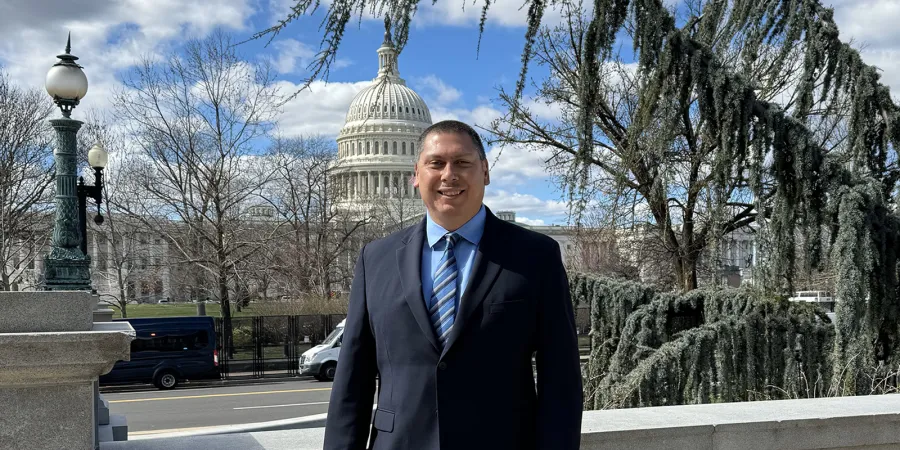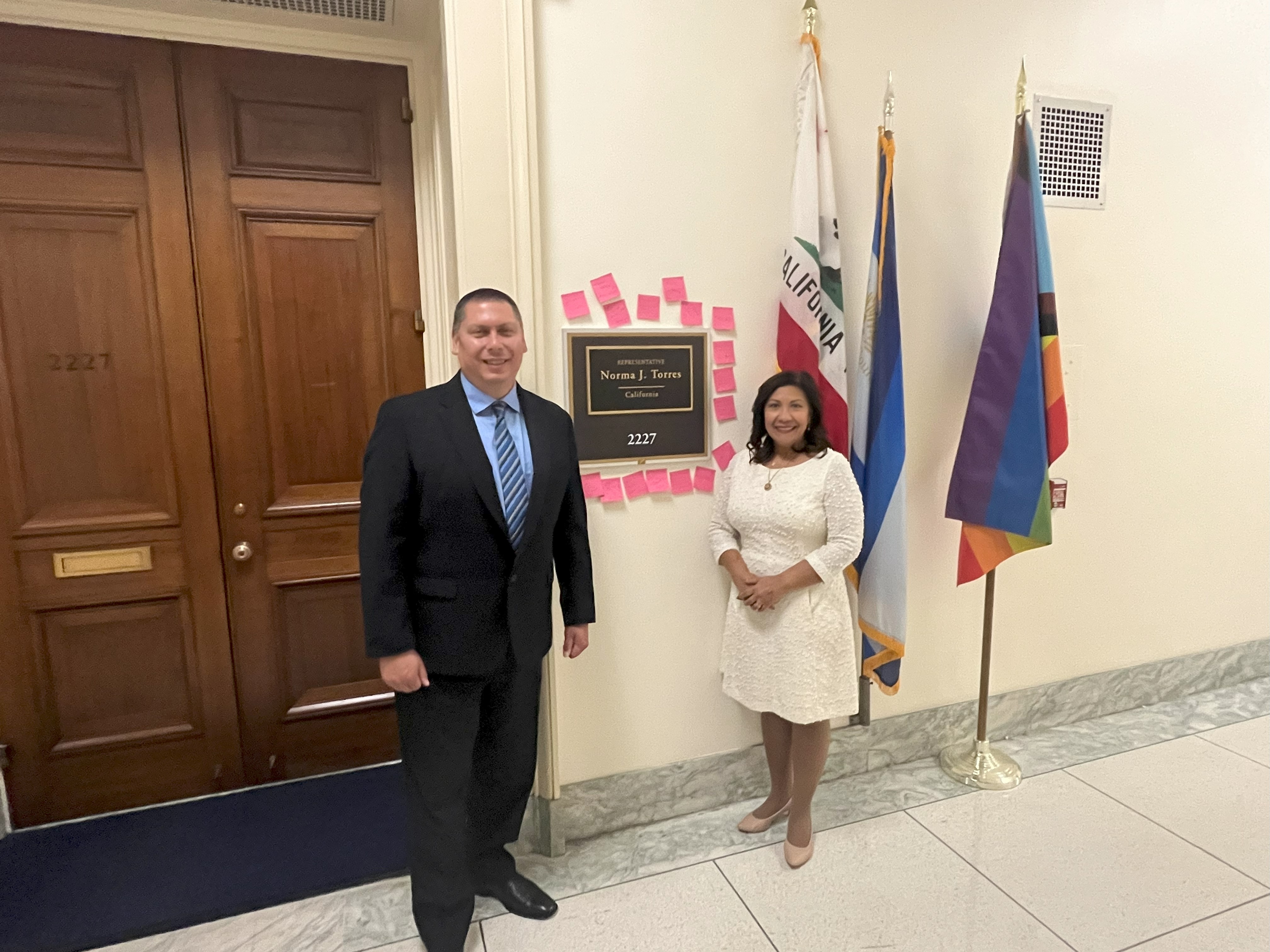Mr. Montoya goes to Washington


Growing up in Garden Grove, California, the son of a 17-year-old single mother, Richard “Rickk” Montoya Jr. never imagined he’d be sitting in the Capitol building during a State of the Union address.
But last week, Montoya, a Los Angeles Police Department 911 dispatcher, attended President Joe Biden’s third state of the union address. He was the guest of California Rep. Norma Torres, also a proud AFSCME member and like Montoya, a L.A. 911 emergency dispatcher before becoming a member of Congress.
With union blood in his bones, Montoya describes his path to both public service and a leadership role in his union – he’s the secretary-treasurer of AFSCME Local 3090 (District Council 36) – as “obvious to anyone but myself.”
Raised in a union family, with union values
“I come from a family of union workers,” says Montoya. “My grandfather was a union worker — a custodian at Disneyland. My mother was a clerk in the records department for Orange County probations and was also a union member. Unions have always been there. My mom was a teen mom, I’ve always thought it was the union benefits that helped her raise me on her own.”
After serving in the Army, Montoya returned to Los Angeles.
“LAPD is the biggest show in town, so I wanted to work for a department that had a rich history where I would get the most experience and get to do the most on a daily basis.”
While Montoya originally thought he’d be a police officer, becoming a police service representative, as 911 dispatchers are called in the LAPD, allowed Montoya to use many of the skills he learned in the Army.
Treating strangers like your family
Montoya’s specific role within the 911 system is a bureau coordinator.
“I oversee four to five different divisions of radio and telephone operators,” he says. He communicates with officers during emergencies and shares urgent information with other agencies, like fire departments, EMS and the California Highway Patrol.
For eight hours straight, Montoya says, “you are dealing with problems literally every minute and every second of the day. But it’s a great feeling when the call you took means you were able to get a person the medical attention they need. But it’s extremely stressful.”
Montoya says that when he fields a call, “I want to treat people in a manner as if that was my wife calling and needing help. We need to be there because it is a lifeline.”
Staffing issues compound the stress of the job.
“We’re having a hard time staffing. Specifically for 911, it becomes tough. One less body on the floor means call-answering time going down,” says Montoya. “We have a 95% standard: 95% of all calls have to be answered within the first 10 seconds. Our deployment levels are making 95% a hard target to clear.”
Using the power of his union to be seen and heard
Montoya uses his union voice to educate the public about the critical role 911 workers play in the public safety system.
“[Unions] are how we push the importance of what we do. No one second guesses the importance of a 911 operator when they’re calling 911, but outside of that, we’re never seen and only heard.”
Montoya knows that by taking an active role in his union, “we’re getting the city council to recognize our issues. We do this every Tuesday. We get out [to the city council] and talk about our issues, and it’s brought them to the table.”
That’s why he’s also working on signing new AFSCME members.
“I am trying to get more people in the tent. More people give you more leverage at the bargaining table. You can come from a position of power.”
Fighting for their profession
Torres has co-sponsored a bill called the 911 SAVES Act, to change the classification of 911 operators and dispatchers from “clerical” workers to a new “Protective Service Occupation.”
“As a former 911 dispatcher, I know how important it is for dispatchers to have the training and resources they need to successfully do their work and help save lives,” said Torres. “Dispatchers are the first line of response during an emergency, and they deserve to be classified in a way that recognizes that their work is on par with that of other public servants classified as first responders.”
Crucially, says Montoya, the reclassification from a clerical worker to a first responder could ensure that positions like his are protected from budgetary winds.
Montoya points out that during times of emergencies, like natural disasters, 911 dispatchers may be called upon to work around the clock as essential personnel. Yet they are more easily laid off during budget cuts.
“You can’t have it both ways,” says Montoya.
‘You can’t buy a ticket for this’
“I am honored to join Rep. Torres for the State of the Union address,” Montoya says. “[She] has always been an essential voice in Congress representing our community and working to keep public services strong. Her SAVES Act would legally define our work as what it has always been: Essential.”
Of her guest, Torres said in a press release: “Union members and 911 dispatchers like Richard Montoya Jr. exemplify the working people House Democrats and the President are fighting for. I hope by inviting a current 911 dispatcher I am able to bring awareness to this important issue and my bill, the 911 Saves Act to finally give them the recognition and resources they need and deserve.”
Montoya summed up his whirlwind visit this way: “You can’t buy a ticket for this. It’s a once in a lifetime opportunity. It’s an honor.”
